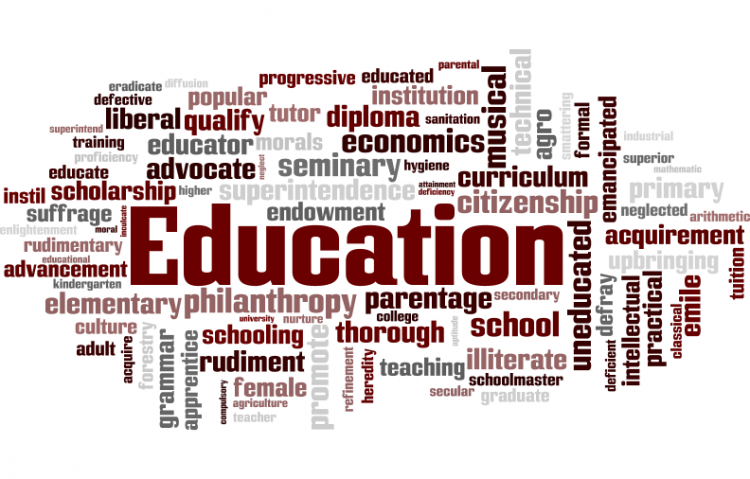
- Target:
- All Filipino Advocates for Mother Tongue Based Education
- Region:
- Philippines
- Website:
- mothertongue-based.blogspot.com
Education for All: Building Strong Learning Foundations thru the Mother Tongue
Philippine basic education is now at a critical crossroad.
It now calls for the revisiting of our commitment to Education for All (EFA) 2015. All stakeholders have to be vigilant and involved. Otherwise, education will just be a weak transformative power in our society. Instead of education for all, it will be education for the few; instead of seeing Filipino youth become critical thinkers, coherent communicators, and productive citizens; we will see a generation of unreflective and mediocre mouthpieces of languages not their own.
We affirm the need to improve learning competencies in all subject areas, including English. Our educational system has to move forward following a roadmap drawn by experts in language and education based on empirical proofs. Experiences of other multilingual countries all point to the mother tongue as the best language of learning, especially in the early grades. The mother tongue is the most effective bridge to and foundation for the learning of other languages like English.
At this stage, however, many of our lawmakers and national leaders still hold on to the unfounded but long-held belief that an English-dominated initial basic education will produce superior learners. We submit that such educational strategy will only benefit a very small number of Filipinos—those who belong to families where English is the home language. But the truth is that the majority of our school children come from homes where the mother tongue is the predominant language. This explains their marginalization in the classroom.
Such marginalized learners, as pointed out by scientific evidences face the double burden of learning. They are struggling to learn the 3Rs on top of the big burden of learning an alien language in which they are taught. This predicament is one of the major culprits of poor performance and high drop-out rates. All of these imply the needed approach-- teach the yet unknown 3Rs through the already familiar local language and culture, build the learner’s capacity to learn and introduce a second language with the correct phasing. With such mother tongue-based multi-lingual education (MLE) framework, the mastery of all the learning areas including English is effectively attained.
It is a basic truth that language embodies a person's cultural identity and heritage. To uphold this truth, even international law guarantees and directs states’ educational system to develop respect for the child’s own cultural identity and language (Article 29-c Convention on the Rights of the Child). Thus, we reject any assertion that a local language may be inferior, inadequate and poses an obstacle to learning.
We also reject the usual argument that MLE is costly and, therefore, very hard to implement in the face of limited financial resources. Papua New Guinea, a poor Asian country of more than 800 languages, has demonstrated that reliance on local initiatives and resources for MLE is highly feasible and substantially saves on much costs of developing and producing learning materials. Recently, our own DepEd’s Agusan Pilot MLE Study corroborated the practicality and merits of local self-reliance and initiatives. Thus, we submit that ultimately, to insist on teaching with an alien language is more costly and inefficient when children do not become functionally literate and hardly develop higher order thinking skills and whose English competencies are mediocre.
In view of the rush to pass a law on English-based teaching in basic education, stakeholders need to collectively reflect and act now. We call on the following and other stakeholders:
The Department of Education - to have the resolve to uphold and adopt its own framework on Mother Tongue-based Multilingual Education set by the Basic Education Sector Reform Agenda (BESRA) as the touchstone of the national policy on languages in education;
The Legislature - to pass the amended House Bill 3719 (The Multilingual Education and Literacy Act) as a measure to rationalize and institutionalize a language of learning policy;
The teachers, school heads, and education managers - to provide the initiative and creativity that would bring about a learning environment conducive for mother-tongue education to flourish within the framework of School-Based Management (SBM);
The PTCAs, local school boards, LGUs and other community stakeholders to mobilize and develop the needed resources such as policy framework, learning resources, awareness and capacity building, and advocacy to guarantee implementation and contextualization of mother tongue-based learning.
And all concerned citizens who believe in the cause of Education for All, we call on you to make your voices heard and to give your wholehearted support to mother tongue-based education initiatives.
Let us strengthen the basic foundation of an educated nation: FUNCTIONAL LITERACY FOR ALL. Onward with Education for All through MLE 2015.
Indicate your support by signing the petition form below. For questions, comments, please visit our forum or our blog: http://mothertongue-based.blogspot.com/.
For paper-based signature campaign, please include name, town, province, organization/sector, contact number. Scan the document and email to mother.tongue@yahoo.com
You can further help this campaign by sponsoring it
The Mother Tongue Based Learning for the Philippines petition to All Filipino Advocates for Mother Tongue Based Education was written by mother tongue and is in the category Education at GoPetition.